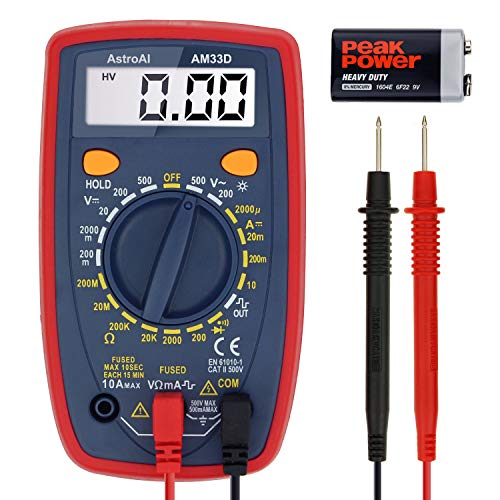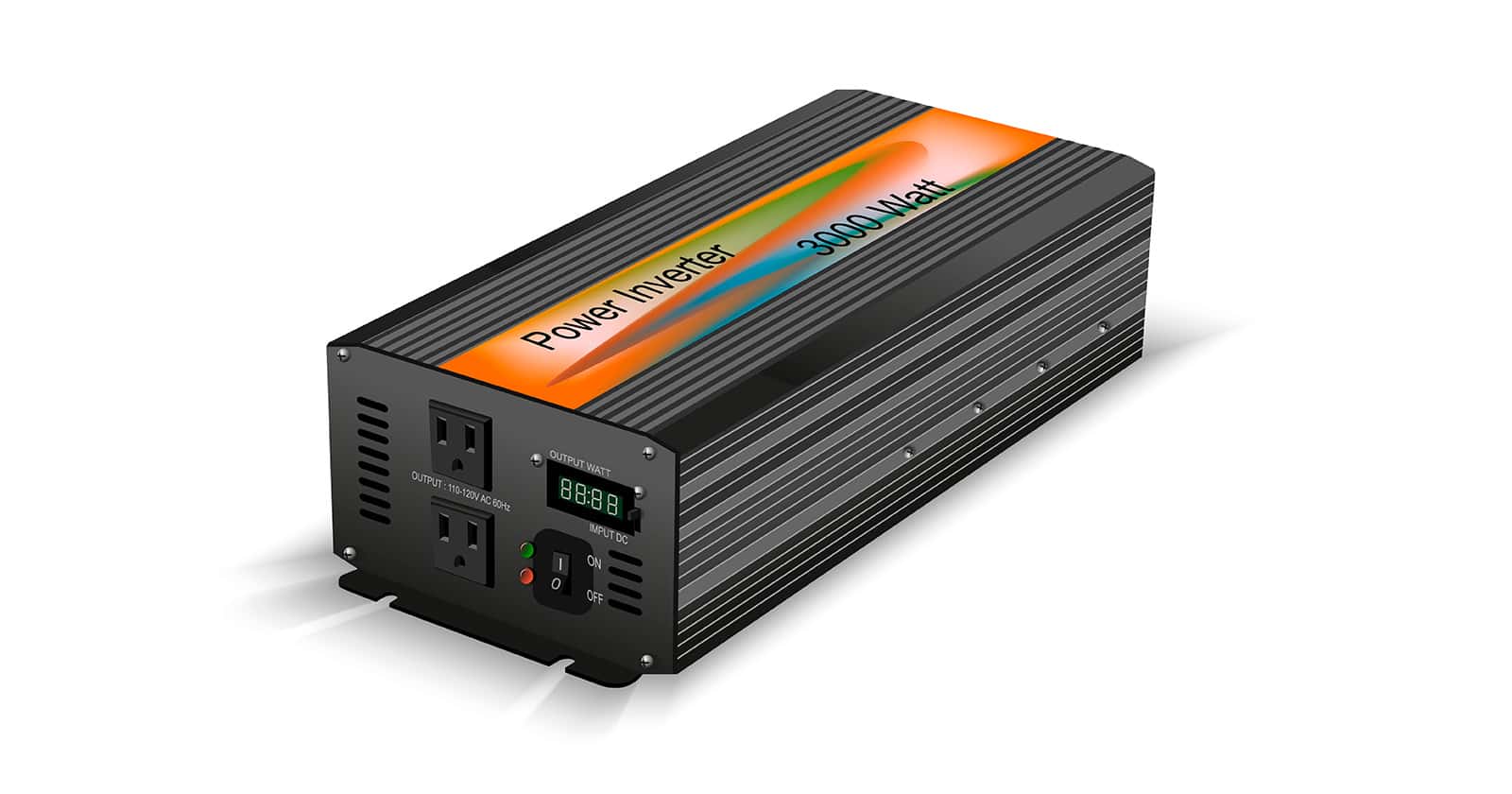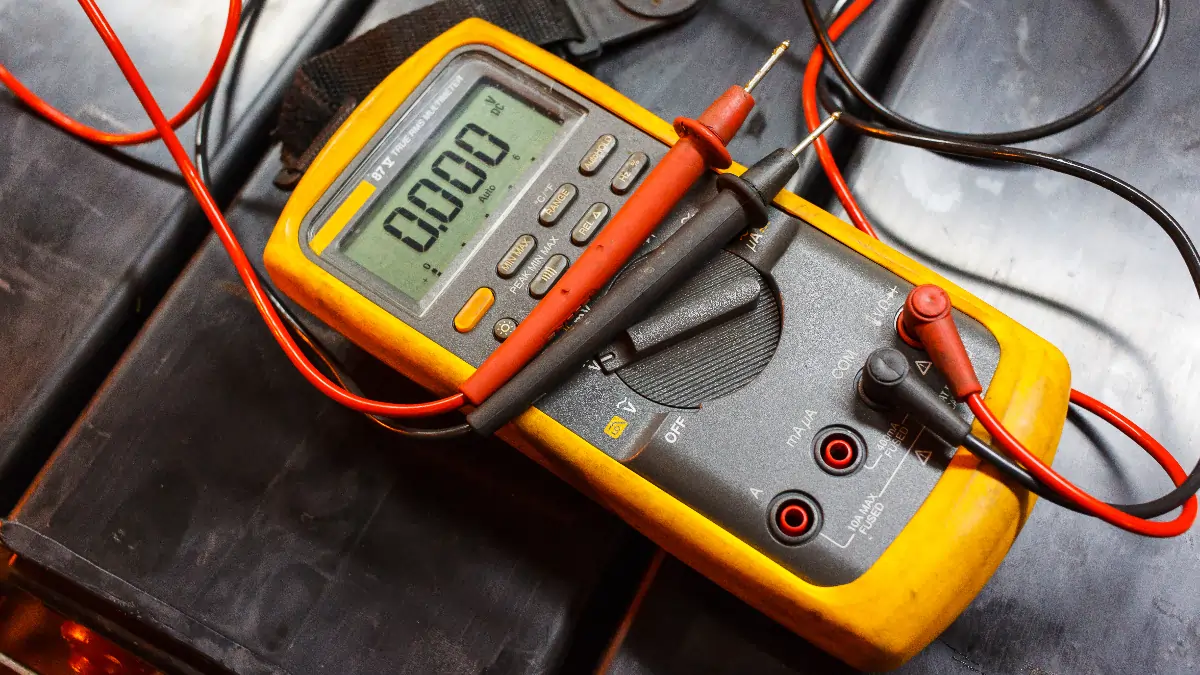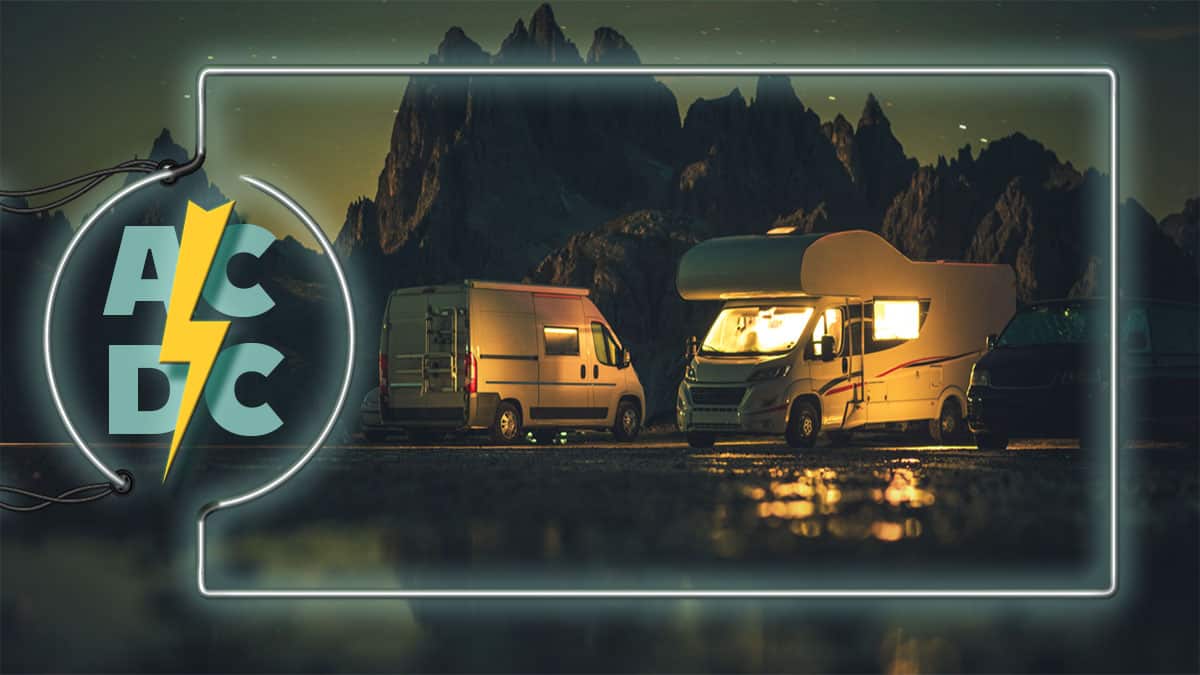The big advantage of taking your RV out is having electricity. It lets you have real meals with your stove, microwave, and refrigerator. Entertain yourself through your televisions, stereo, and the kids’ game console. Electricity also helps you monitor your coach vital statistic through monitor and gauges. What happens when it all shuts down? Your RV converter is a vital piece of equipment in your RV. Every amp of electricity runs through it to power your living area’s electronics. While they are durable, they can fail.
When Your RV Converter Goes Bad

To tell if your RV converter is bad, you will start to see warning signs. Your interior lights are the easiest indicator. If you are seeing your lights dimming, your converter could be in trouble.
Other clues would be your electronic devices do not work as well. Another indicator is your refrigerator having a hard time maintaining its temperature. A third indicator could be your devices won’t work because the outlets are not getting the proper amount of electricity.
A more serious indicator is your house batteries. Part of the converter’s job is to send power to your house batteries for charging purposes. If they are drained and will no longer hold their charge, this could be your converter not doing its job.
What Does Your Converter Do
Your RV converter changes the 110 volt AC shore power to your house batteries 12 volt DC power. Conversely, the inverter does the exact opposite. When running properly, the shore power voltage should be between 108-130. Your batteries should run between 11-13 volts.
If you do need to replace your converter, prices vary between $150 – $1,600. The difference in price depends on the amount of amperage you are dealing with. For your RV, be prepared to spend above $400 or more. Replacing a converter should be done by professional technicians due to the complexity of the procedure. Installing it incorrectly could end up burning out your entire electrical system.
Find the Malfunction Through Troubleshooting
There are multiple ways in which to locate the problem with your electric system. To help, you will want to buy a voltage meter and/or a multimeter. These devices are used to test the various electrical measurements in your system. The multimeter does test voltage but has the added feature of testing amperage and watts.
- VERSATILE DIGITAL MULTIMETER - Accurately measures AC/DC Voltage,...
- TROUBLESHOOTING WITH ACCURACY - This Multimeter has a sampling...
- ENSURES SAFETY - Double ceramic fuse is anti-burn and protects...
- EASE OF USE - Support Data Hold, low battery indicator and...
- ADDITIONAL TIPS - This Multimeter is designed to troubleshoot a...
Before you run around your RV testing the more complicated electrical connections, check your electrical devices first. That particular device could have become damaged. It will save you time, and your dignity.
The first place to check is your shore power and DC breaker box. If the power coming into your RV is not within the AC or DC volt ranges, then your RV converter could be bad.
Check Your Batteries
To determine if the problem is your batteries, fully charge them. Once charged, disconnect them from your camper. The goal is to isolate them from your electrical system. By keeping them connected, you will not have an accurate reading. Power will be drawn from your shore power hook up or the engine battery.
If you have a bad reading on your meter, and the battery is not charging, then you need to replace your battery. If your house batteries are fully charged, but you are still having problems, it could be the converter.
- Cold Crank Amp (CCA)- 330
- Better : Limited 3 and 4 year full replacement - not pro rata
- Longer service life: With 3-10 years of service life, ODYSSEY...
- Longer cycle life: 70 percentage longer cycle life compared to...
- Faster recharge: The highest recharge efficiency of any sealed...
Check Your Converter Fan

The purpose of the fan on your converter is to prevent the converter from overheating. When working properly, the fan will turn on and off intermittently depending on the internal temperature inside the converter. If your converter reaches higher temperatures, you could have electrical issues inside your RV.
To test this, use your meter at the entry point of the fan’s power line to see if it is running within the AC volt acceptable levels. If the fan needs to be replaced, use the same fan part. They are designed for your converter’s specific needs. It must fit correctly and cool the converter properly. You are taking a risk when using a different type of fan. If using a different fan, make sure the fan runs on the same voltage and amperage.
If it is not your fan, still check the temperature of your converter. If it feels above normal, it could be your temperature sensor that has begun to malfunction. To check this, again use your meter on both sides of the sensor. If the power reading is not within the proper range, that could be your issue.
Circuit Breaker
Testing your circuit breakers one by one is another troubleshooting technique to tell if your RV converter is bad. A good strategy to test your circuit breakers is to keep your main breaker on, but turn off the other breakers. Open and close each breaker individually to see if power is reaching its destination. For example, if you lost power in your bathroom sink vanity area, open and close the breaker. If the power does not return when you open it, you know it’s not the breaker.
Fuses
You will also want to look at the fuses. Your fuses are designed to take electrical surges and break before it burns out your electric amenities or melts wires. Pull each one out individually. If one looks burnt, and the metal bridge inside of it is cracked, you will need to replace it.
It is always a good idea to have a set of backup fuses in your toolbox. RVs use car fuses of various amperages. You can buy them either individually or in kits. Kits can be around $20 and have blade fuses between 5-30 amp versions. They come color-coded to help you distinguish between which fuse is for which amperage.
- 【High cost-effective fuse kit】-- The kit includes mini size...
- 【Reasonable quantity matching】-- According to market research...
- 【High quality, easy to identify】-- The fuse is made of...
- 【Precise protection】-- According to many experimental data,...
- 【Installation Instructions】-- The kit contains fuse...
Circuit Board
Unscrew your circuit board. Battery acid can build up on the circuit board in various connections. You can identify it by seeing a white, flaky substance on the connections. Cleaning it is simple.
First, make sure you do not have any electricity running through your coach. Disconnect your shore power, solar panels, and batteries. You will be working with water, so you want to protect yourself and your coach from electrocution.
Next, mix one teaspoon of baking soda with 12 ounces of water. With a q-tip or cloth, gently clean away the battery acid. Once you have finished, give the board some time to dry off. When dry, hook your power sources back up. If that does not change anything, then your RV converter is bad.
Resistors
Some RV converter circuit board use resistors. For those who do not know, resistors are used to control the voltage coming from your 12 volt DC power sources. They are buried behind the circuit board so take great care when trying to locate them, to prevent other problems. These resistors can be riveted into the circuit board, making them almost impossible to replace yourself.
If you see a buildup of battery acid on the resistor gates (connection points), then your resisters could be the problem. Due to the complexity and cost of trying to replace your resistors, you want to take your RV to a professional. They can discuss with you about replacing the resistors or replacing the converter is the better option for your RV.
Diodes
Diodes are designed to keep power flowing in one direction. It prevents the current from reversing itself and blowing out your batteries or solar panels. They are difficult to test even by experienced RV technicians. If your diodes are the problem of your electrical system, replacing your converter could be your only option.
- 20 Pcs 15SQ045 / Forward Current : 15 A / Maxixum Repetitive Peak...
- Meterial:Si;High surge current capability.
- Low leakage and forward voltage drop;Low power loss, high...
- Maximum Average Forward Current: 15 A MP.Forward Current (at...
- All products are tested for stability, consistency and...
Best Practices

There are some preventive measures you can take to keep your converter healthy and avoid power loss on your RV trip.
- Before a long trip, spend some time testing your system at home as a preventive measure. No one wants to be stuck on the road when the converter goes bad.
- Older RVs should also be checked periodically. Wear-and-tear issues can develop, fuses may have to be replaced, or other parts may need replacement. Remember, an RV is a rolling house, so upkeep is key.
- If you live in hot climates or near the coast, your batteries can die out every few years. Replace your batteries every 3-5 years to avoid losing power on the road. In Florida, there is a saying: “Florida eats batteries.” The reasons for this are still being debated. Some blame the heat, others the salt air, or other environmental issues. It could be fact or folklore, but dead batteries are prevalent in Florida.
- When plugging into shore power at a campground, make sure the circuit breaker is closed first. You want to make sure there is no power running through it when you plug in. Once plugged in, then open the breaker. This will prevent an initial power surge.
- Inspect the power station you are plugging into. You want to make sure that the circuitry and breakers are well-connected and stable. If things are loose or just do not look right, go back to the campground office and discuss it with them. Once you plug in, your RV becomes vulnerable to their electrical system.
- 【5 in 1 European Travel Plug Adapter】- The adapters for...
- 【2 x Travel Adapter USB C】- This european plug adapter added...
- 【US to Europe Plug Adapter】- This European power adapter...
- 【European Travel/Cruise Essentials-Lightweight & Compact】-...
- 【Note】- This european travel plug adapter is not a voltage...
Your RV converter is a durable part. They are designed to last the lifetime of your RV, when properly maintained. It is not often that they do break down. If your RV converter is bad, the best advantage is to take it to a professional RV technician to work on it. They have the experience and tools to fix it the right way the first time.
Product data was last updated on 2024-04-23 at 04:52.









